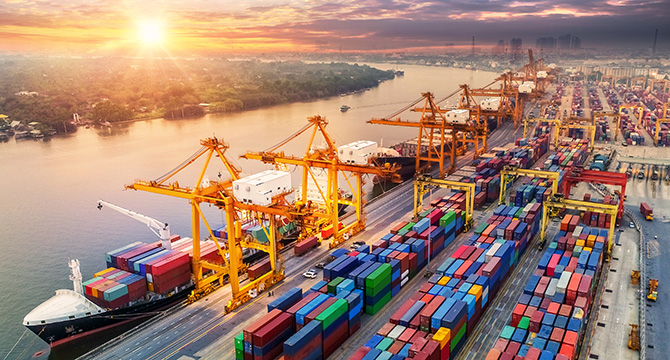Five Compliance Best Practices for … Customs Broker Management (Part I)

As an accompaniment to our biweekly series on “What Every Multinational Company Should Know About” various international trade, enforcement, and compliance topics, below find an update to our series on compliance checks that every multinational company should consider. Give us two minutes and we’ll give you five suggested compliance best practices that will benefit your international regulatory compliance program.
At too many importers, the governing philosophy is that they can pay minimal attention to import compliance because managing customs is “done by the customs broker.” But under Customs regulations, full responsibility for the accuracy of all submitted information, as well as the full payment of all tariffs due, is on the importer of record. While the customs broker is a key part of the transaction, importers need to be fully involved in all aspects of importation to ensure the accuracy of all submitted information.
Importers can effectively manage their relationship with customs brokers by implementing several best practices and strategies. By adopting these practices, importers can foster a productive and collaborative relationship with their customs brokers; promote compliance, efficiency, and transparency in customs operations; and ultimately optimize their import processes:
- Be Certain You Have Selected the Right Customs Broker(s). Importers should conduct thorough research to identify reputable customs brokers with expertise in their industry, which are willing to learn about the products the company commonly imports. If your broker(s) appears to be just importing without learning about your company’s import patterns, consider whether another customs broker might be a better match.
- Consider Whether You Should Consolidate Customs Brokers. Some importers have accumulated multiple customs brokers without much forethought, such as might occur where the company has acquired new companies and subsidiaries through merger activity. In some cases, we have seen companies that were not aware of all the customs brokers they were using, such as where Product Development had established a new importing channel, separate from the importer’s normal imports made by procurement. If you are not aware of how your company’s imports are being made, or know that the company is using multiple customs brokers, consider whether it makes sense to consolidate with a single broker or fewer brokers.
- Evaluate Whether You Need to Have Multiple Importer of Record Numbers. Along the same lines, we commonly find that companies have multiple importer of record numbers that are active. This can present problems in running your ACE account, lead to incomplete data reports, lead to issues in overseeing imports, and result in missed responses to Customs inquiries such as Form 28s (requests for information) or 29s (notices of action). Unless there is an identified need for multiple IOR numbers, consider consolidation.
- Evaluate the Qualify of Your Communication Lines with Your Customs Brokers. It is important to have clear lines of communication with your customs broker so the exchange of timely and accurate information about your shipments, including product descriptions, value, quantity, and origin, will facilitate smooth customs clearance. Evaluate whether your communication lines are working efficiently and accurately, both with regard to shipments and inquiries from Customs. There should be regular communication with your customs broker and regular updates on the status of your shipments and customs clearance, along with timely sharing of Customs documentation, such as entry summaries, customs declarations, and duty/tax assessments as well as the prompt provision of Form 28s and 29s and other Customs inquiries.
- Evaluate Prospects for Technology Integration. Many customs brokers are rolling out technology solutions and automation tools to streamline customs processes, improve data accuracy, and enhance collaboration with your customs broker. Explore options for integrating your systems with your broker’s software platforms for seamless data exchange and real-time visibility into your import clearance activities.
If you have questions or concerns about this article, please feel free to reach out to any of the authors or your Foley & Lardner attorney. If you would like to see future updates regarding “What Every Multinational Company Needs to Know” about operating in today’s complicated international trade world, please sign up for our biweekly email list. Click here to register.
To view all articles in our “What Every Multinational Company Needs to Know” series, click here.
